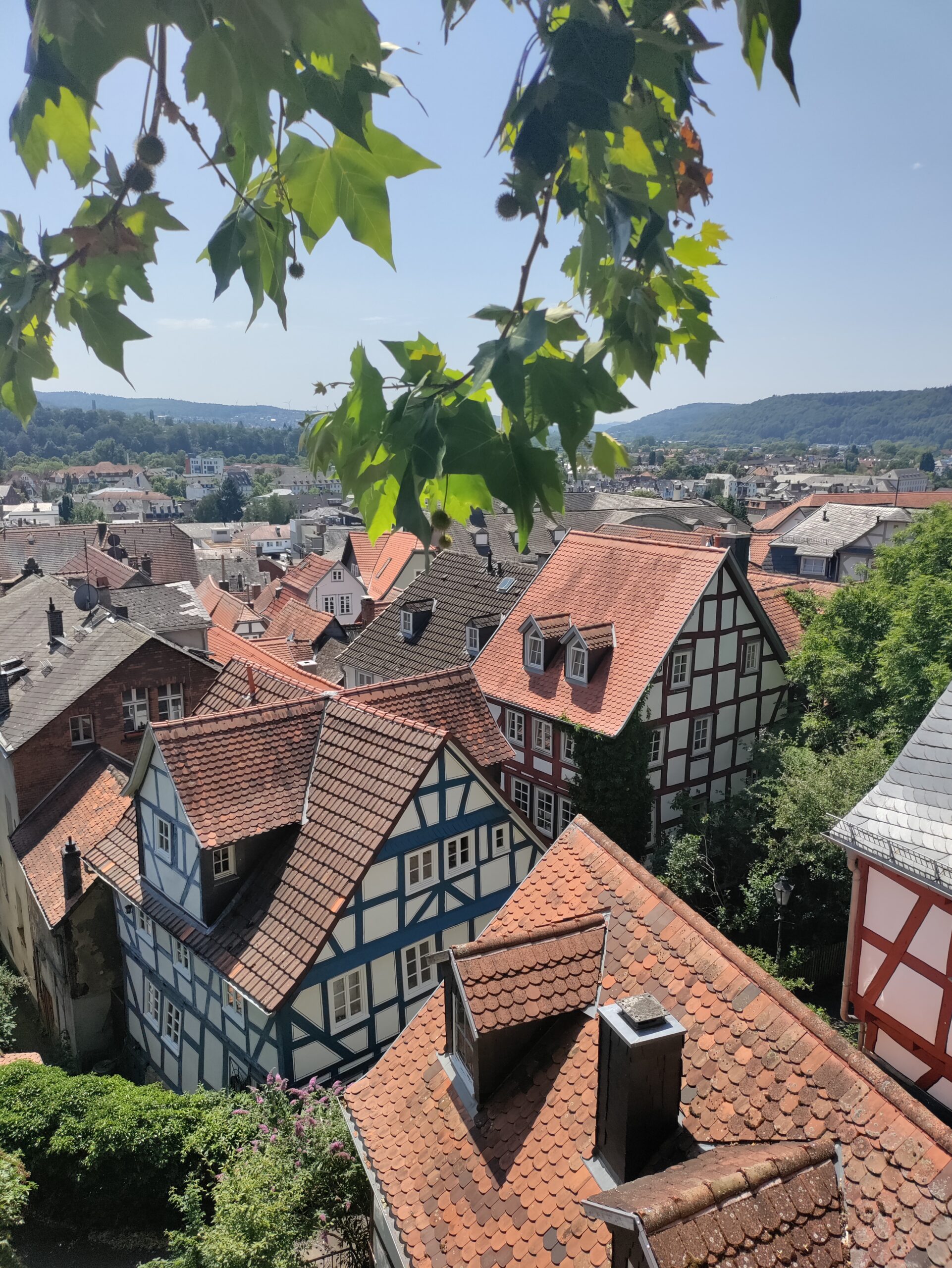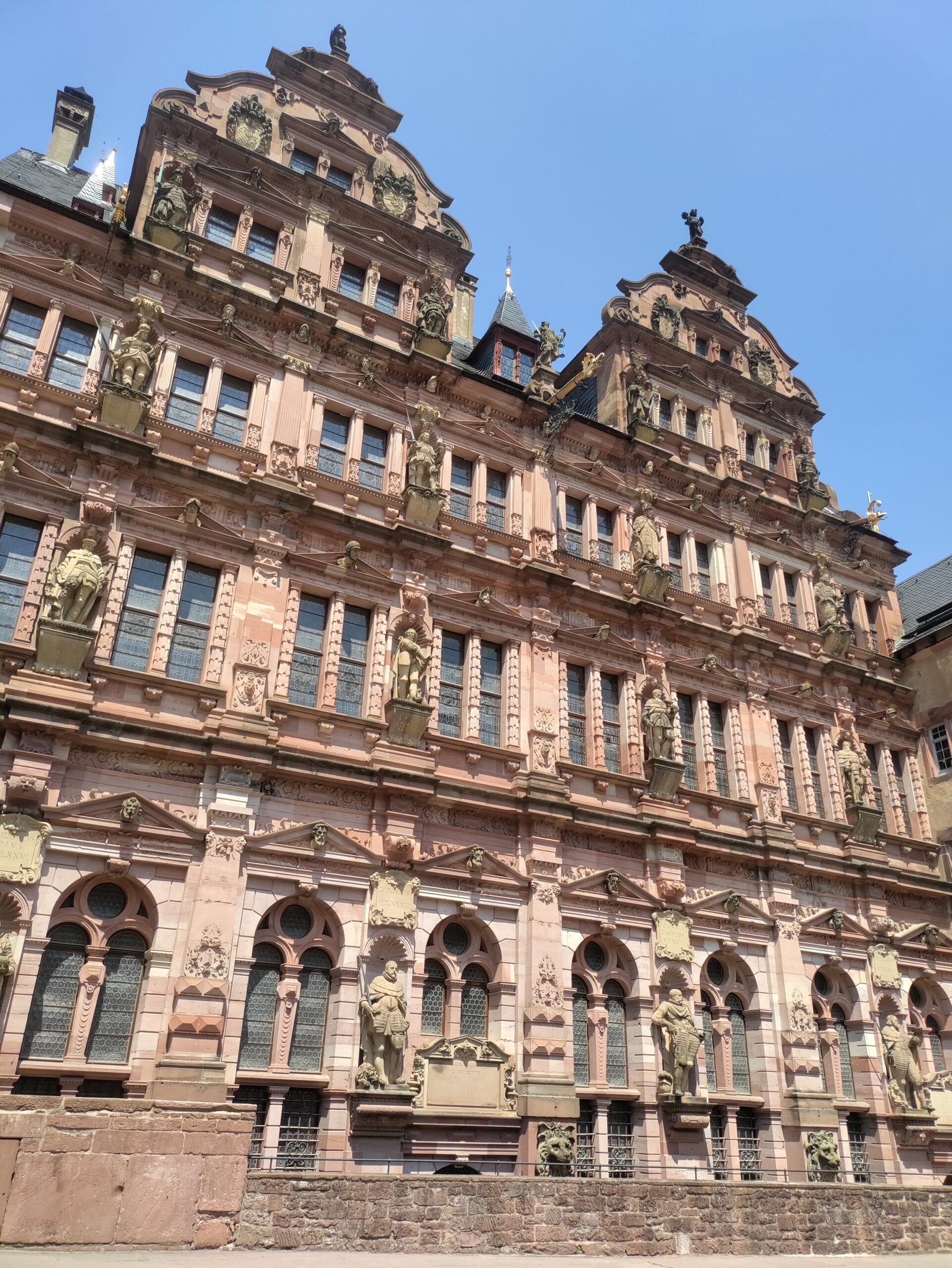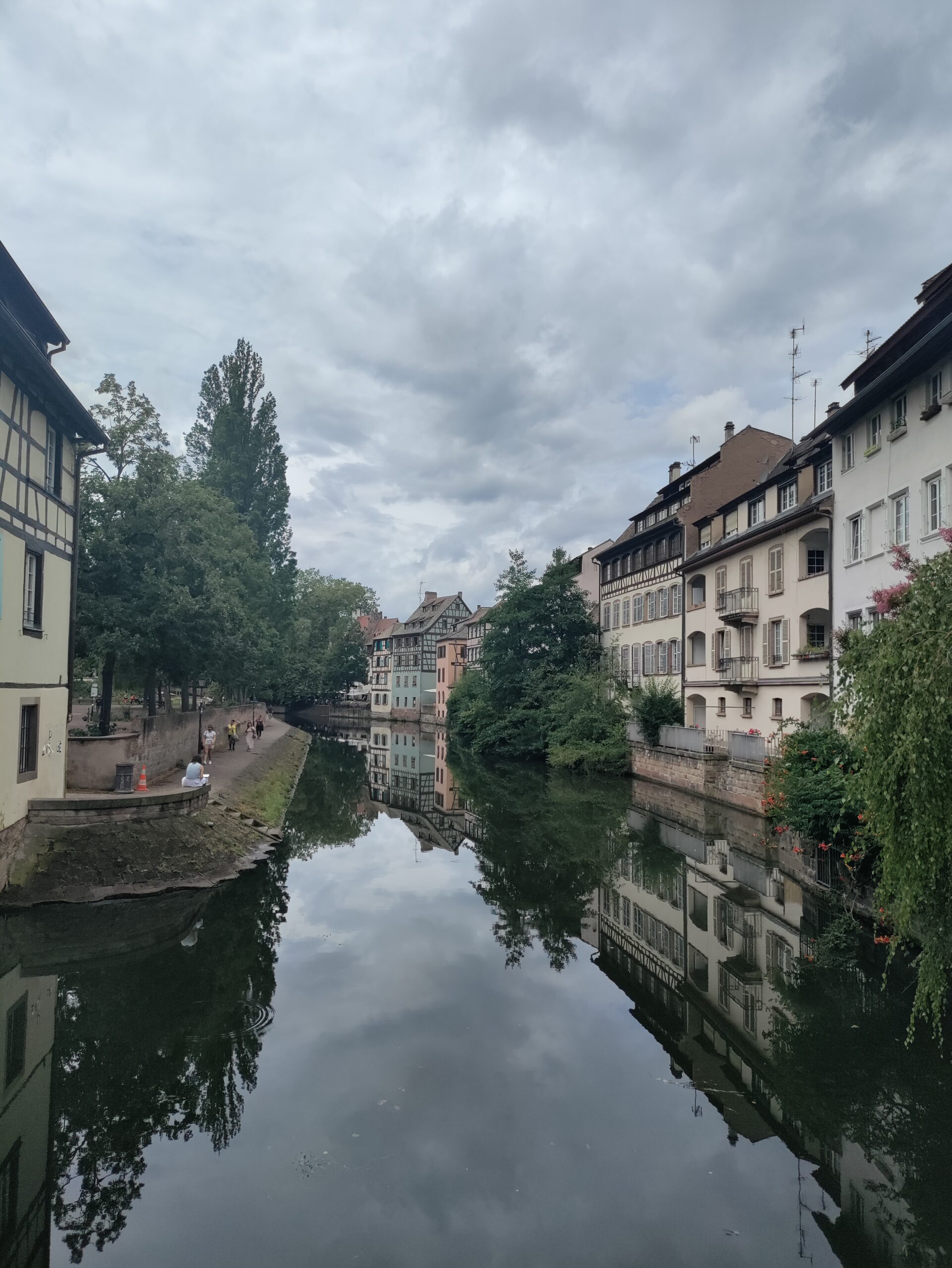Internship abroad? How I got mine in Germany
24/05/2024
Hi all! An internship abroad? Sounds like a cool idea, right? It is an exciting way to experience being in another country! In this post, I will tell you more about how that can work. I will use my own experience of internship in Germany as an example.
Doing an internship in another country is not as well-known as doing a study exchange. Because of this, the process is not as structured as in exchanges. Also, the internship offerings are more diverse which makes every internship one of a kind. That is why I will write more personally about my internship instead of explaining generally how internships work. Things that happened to me, may be completely different for you if you apply. I just hope to give an example of how the application process can work in practice and what kind of tasks internship abroad may include.
I got a scholarship from Erasmus+ so my exchange was technically an Erasmus+ internship. So yeah, under the Erasmus umbrella, it is also a possibility to do an internship. This is really nice!
My experience of an internship
For summer 2022, I wanted to find an internship somewhere, preferrable abroad. After searching and writing a bunch of applications, I managed to get one in Mainz, Germany for a bit over three months. The receiving organization was the Center for Continuing Education (ZWW) at Johannes Gutenberg University. My mentor was one of the researchers in the ZWW, and her responsibility was two international projects (which also got funding from Erasmus). Because the ZWW concentrated on education, also the projects were education-related.
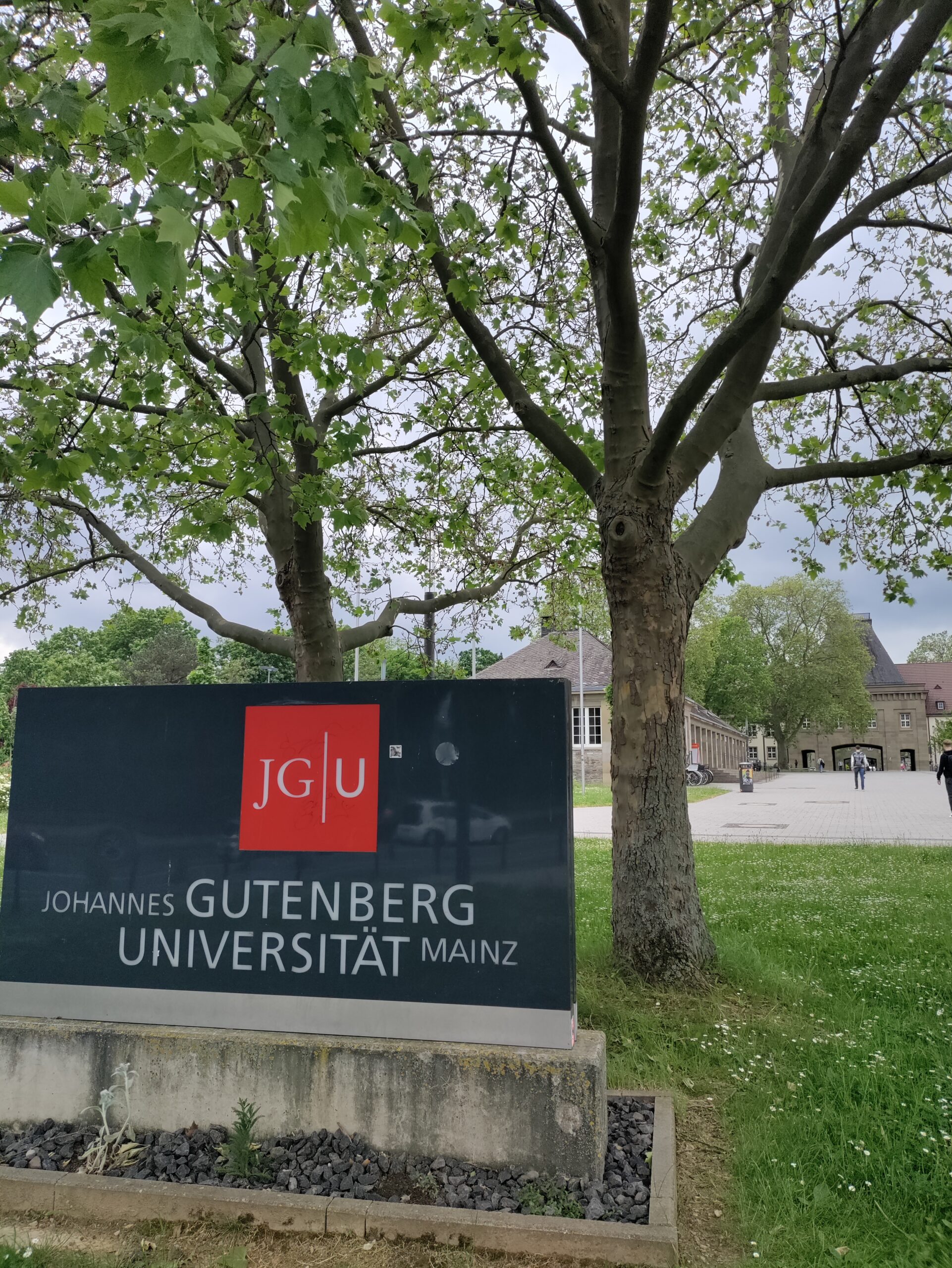
My main tasks were to help her with those projects and anything she could come up with for me. In addition to the projects, my mentor organized intercultural trainings, which I helped prepare. This was fun because as a minor, I had studied a bit of intercultural communication (which I think was one of the reasons why they accepted my application). I did a wide range of tasks as a research assistant, such as writing texts, translations, proofreading, and preparing different materials (Powerpoints, Padlets, etc.). I also participated in meetings, video calls with the partners, seminars, and events! We even organized spaces for young Ukrainian refugees for their almost week-long exams. As you can see, a lot of things!
The internship was an excellent experience! I learned many new things: some were practical skills, such as using Skype in the work community or creating Padlets, but others were more linked to my individual expertise. How to do research in international cooperation and stuff. Together, they made a great combo. In addition, the internship helped me recognize my existing abilities and how useful they can be in working life. All this made it easier to understand what kind of work could suit me in the future.
Also, as part of the internship, I participated in a summer school organized by the ZWW. It was a super cool experience as well!
My experience in Germany as an intern
In addition to all these internship-related things, I also experienced spending a summer in Germany. I stayed in a nice one-person apartment of Studentenwerk (Student Services). I will tell you more about the apartment later. Anyway, even if I was not an actual student in Germany, I was still able to do some student things, such as eating at student restaurants on campus. It was a great way to try German cuisine. However, most days, I just grabbed lunch from a campus bakery. Their Käsebrötchen were the best!
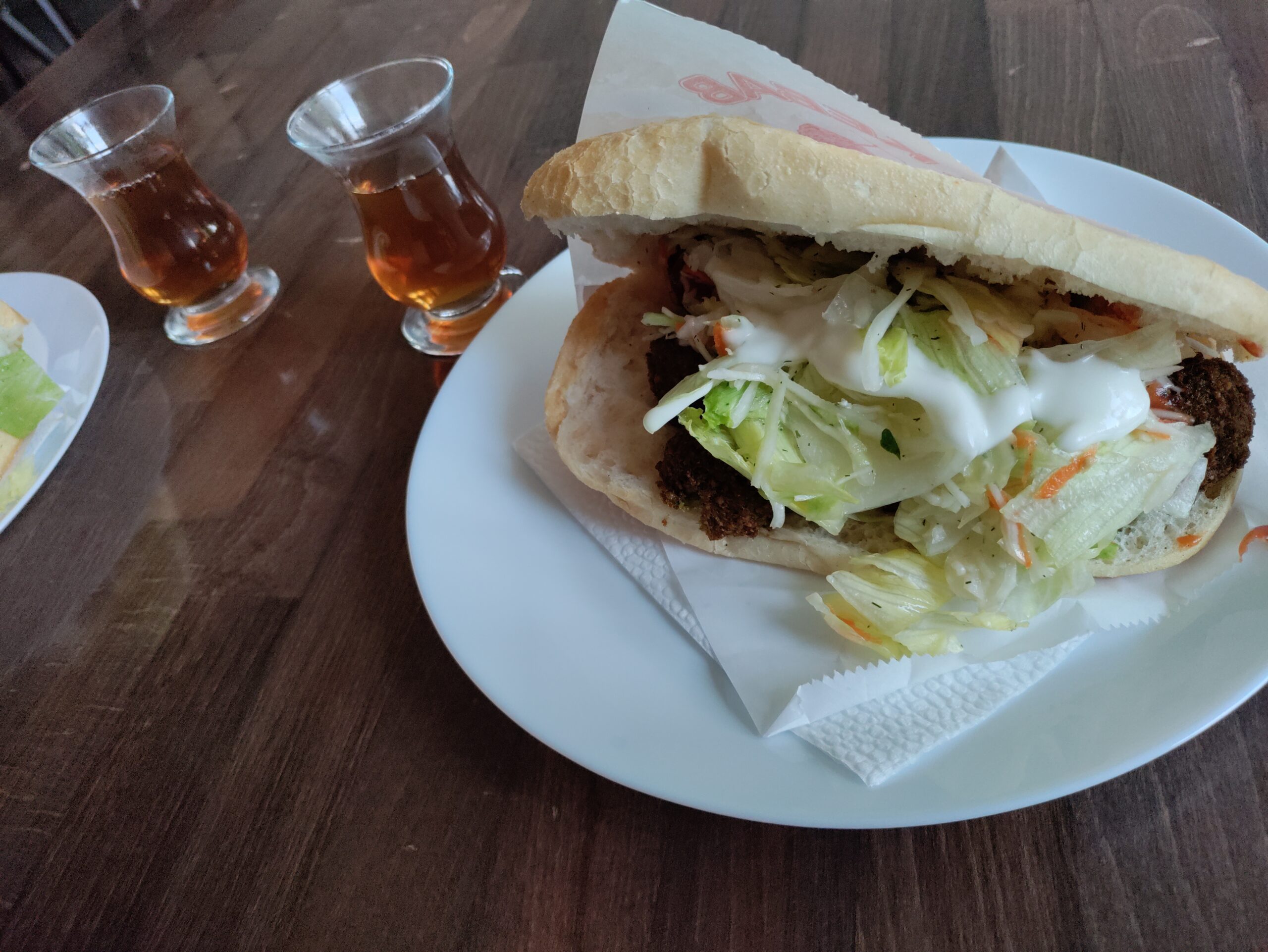
In my free time, I adventured around Mainz, ate a lot of ice cream, and went to the cinema among other things. There was even a cinema on campus where they showed about year-old movies in just a couple of euros. Perfect!
Almost every weekend, I traveled around the nearby area. I had a monthly ticket, allowing me to use the local transportation as much as possible. This included the trams and buses in Mainz as well as regional trains. With just one change of the regional trains, I could go to cities such as Cologne and Stuttgart! Unfortunately, the German trains are not very good at staying on schedule (especially the slow, regional ones), which causes challenges in traveling. To minimize the time waiting for trains, I did not go anywhere where I needed to change trains more than once. Luckily, there was a lot to see in South Western Germany!
Places I traveled during my internship: Frankfurt, Cologne, Mercedes-Benz Museum in Stuttgart, Marburg, Heidelberg and Strasbourg
Pros
- Learning a lot of practical things that you may not learn while studying
- More flexible than study exchange: the internships vary in length, and you can do a wide range of things (if you can find the right place). If an exchange is not something you want to do because it takes too much time or does not fit into your study program, an internship abroad could be an alternative. Or if you are like me, who just likes to explore the world as much as possible, the internship is an interesting way to do something different abroad.
- Because you might be the only foreign intern, it is possible that the receiving organization can take your personal needs and hopes into consideration better than if you were a part of a group of foreigners.
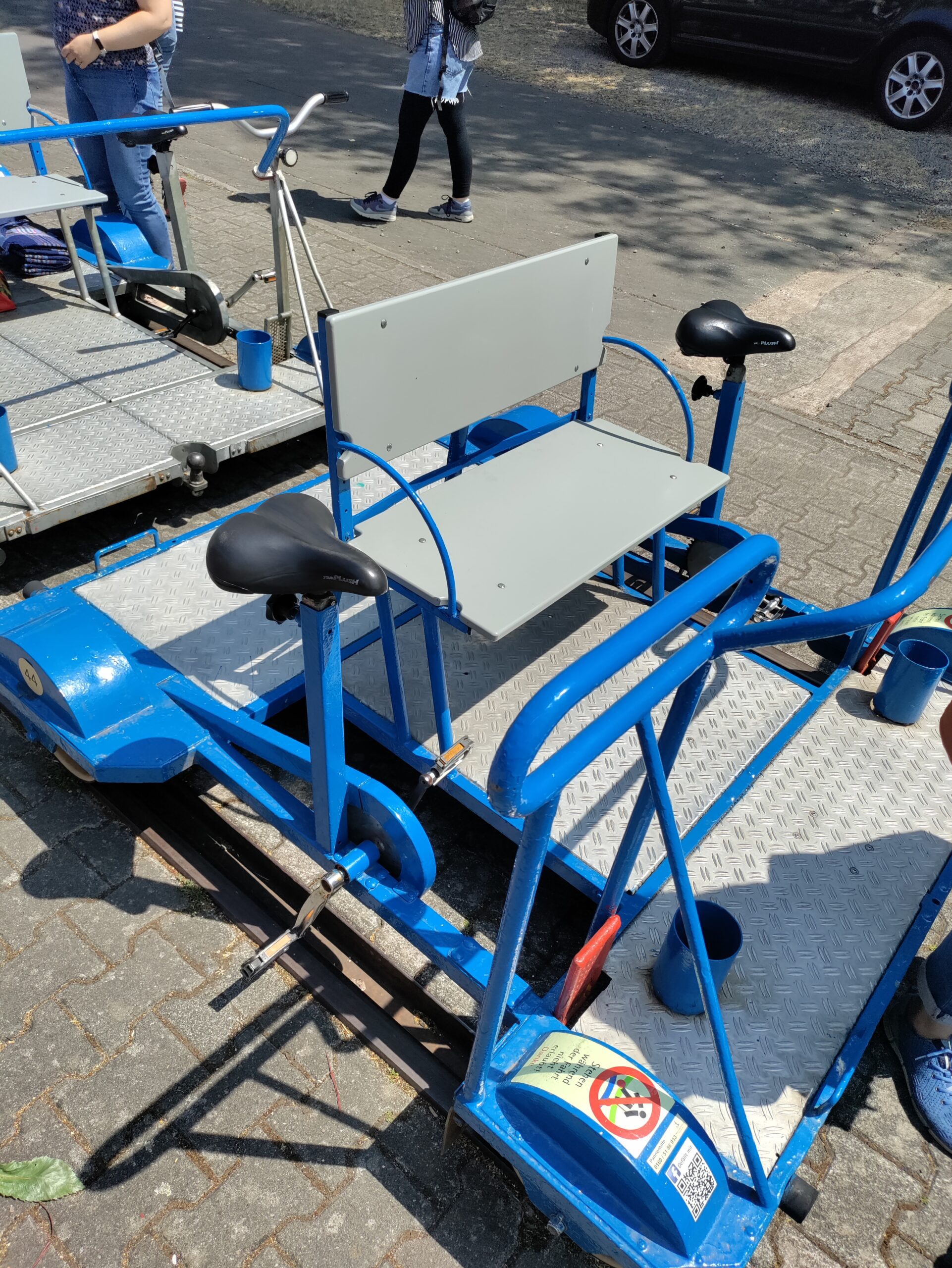
Cons
- The funding: the Erasmus scholarship will not make you rich.
- It is not easy to find an internship abroad.
- If you are the only foreign intern, it might be hard to make friends.
- Also, finding accommodation is not easy either!
But some of these can be solved with good planning. So let’s go to that part!
How did I get my internship?
1. Searching for information about doing an internship
In my study program, it is not compulsory to do an internship, but especially if you have to do one, it is a good idea to start the process by finding out how internships work in your university. Who are the responsible persons, can you get credits, what kind of scholarship options exist, and do you need to write a report or something at the end?
My department organized an info session about internships beforehand, which was super nice, and there they recommended reflecting beforehand on reasons, why to do an internship. This can help to understand what you want to gain during the internship. Also, it is good to think about the possible challenges and problems, that can happen in the internship, so you can prepare for them. I think my stay in Germany was as nice as it was because I reflected on the problems of my previous stays abroad and prepared for the possible obstacles. If I could avoid a situation that had caused issues before, I did that, and for those problems I could not avoid, I tried to be as mentally prepared as possible. Of course, if you do not have previous experience, this can be a bit hard. However, thinking beforehand about what could happen does no harm.
2. Searching internships
This is the hardest part in my opinion. Or maybe I just find it incredibly hard to search for jobs (heh!) So basically it works like you would look for internships in your own country, which works a bit like searching for a job.
Erasmus has a special page for internships: ERASMUSINTERN | I tried to look for something interesting there, but the page seemed a bit confusing. Maybe it was at least partly because of my study field so for you it might be easier.
Anyway, I needed to be creative.
My university is a part of an alliance of universities around Europe called Forthem. Among other things, the alliance offers opportunities for mobility. This includes internships. Lucky me! There was a perfect offer, and I applied for it.
The thing is, I am not sure if many people know that the alliance has internships. And because of this, not many people apply for those. I knew there had been one Finnish intern before me in the ZWW, but they did not have other applications when I applied so – I got the place!
For a person who would like to do an internship abroad, I would advise being creative and looking for networks and alternative sources for options.
3. Writing the application
Because I found the internship through the university alliance, the initial application process happened through it as well. This process included sending a traditional application letter and my CV.
4. Interview?
After the ZWW got my application, they invited me to a little interview, which was nice. It happened via Teams.
To be honest, I had not researched a lot about the Center for Continuing Education before the interview (which was a bit of a mistake), so it was nice to hear more about the work they do and especially the projects of my mentor. I also had a couple of questions to ask them, such as:
- What were the usual tasks I would do?
- Had they had foreign interns before?
- Would I survive with my poor level of German?
The last one was my biggest concern, and I was relieved to get the confirmation that all my tasks would be in English. If they had been mostly in German, I would not have taken this internship.
I also asked if they could help me to find accommodation in Mainz.
5. Paperwork
Before going, there is some paperwork to complete. This is the point to contact your university if it is not done already. They will tell you what kind of documents are needed.
Just as Erasmus exchanges, there is a Learning Agreement for a traineeship in the Erasmus+ Internship program. The Learning Agreement included basic information about me, my university, and the receiving organization. After, there were detailed questions about the internship: what are the tasks, what kind of skills and knowledge the intern hopes to gain, how will the mentoring and evaluation work, and what kind of language competence is needed? The Learning Agreement also includes questions about insurance (will the receiving organization or the sending institute provide them) and about the credits (how will the sending institute award them). I completed the parts I knew (so, basically just my information) and then sent it to the responsible person in my internship place. They and the international office of my university filled it out and signed it.
In addition, I needed to fill out a grant agreement to get the scholarship. For the Learning Agreement, I contacted my university’s international office, but the grant agreement was accepted by the career services.
6. Finding accommodation
After I was accepted to the internship, I needed to find accommodation in Mainz. And that was difficult! At some point, I was stressed and scared that I could not find any place to stay, so I could not go to Germany after all!
Fortunately, I got some help from the internship organization. They sent me some options where to look for apartments. Because they were a university organization, they could ask the local Studentenwerk (Student Services) if I could get an apartment through them. I did send some applications for private shared flats as well, but in the end, it was Studentenwerk, which accepted my application.
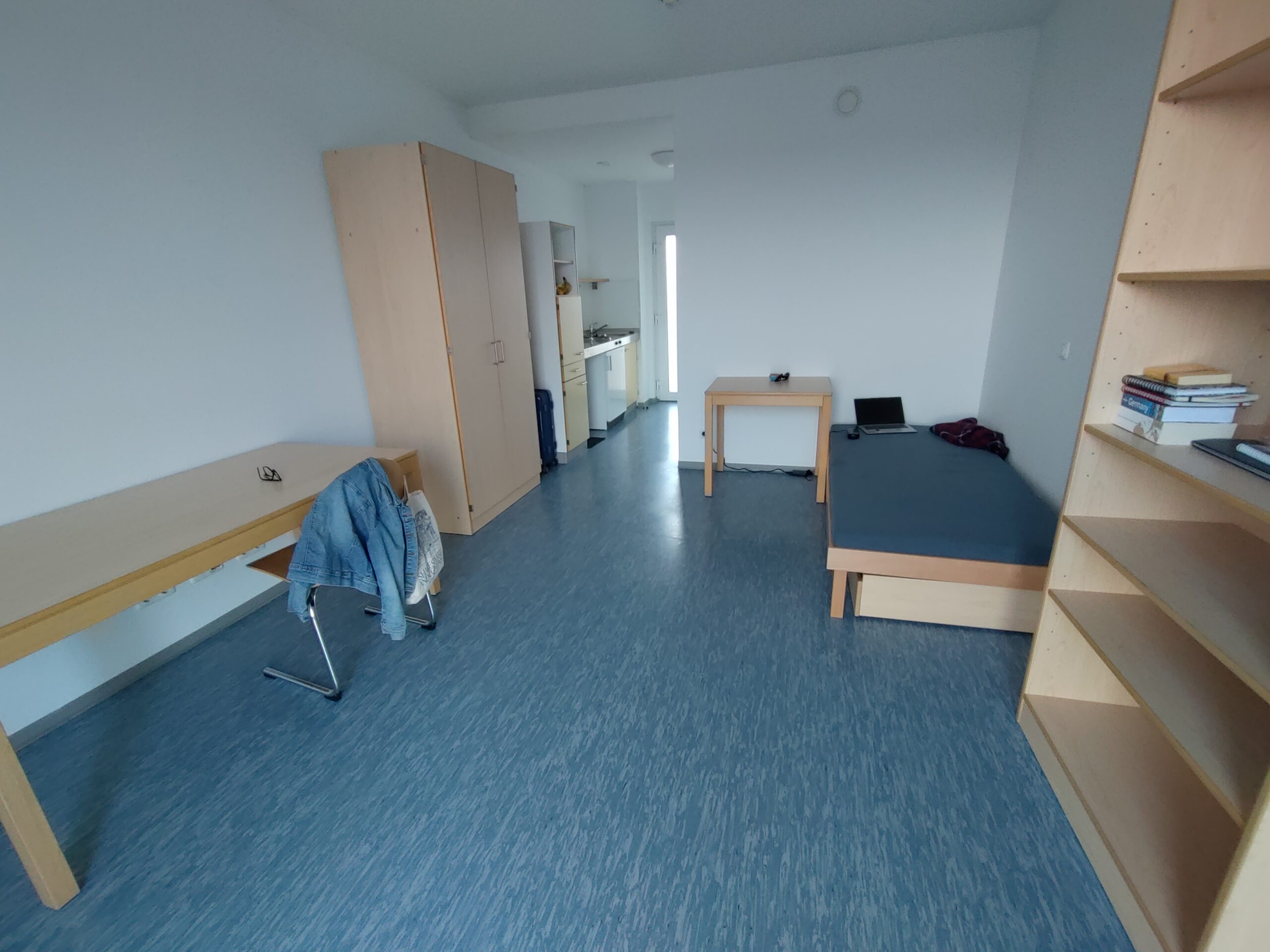
I was pretty happy about the apartment, even though there were a couple of things that could have been better. For example, I applied for a furnished apartment (obviously), which included a bed, a couple of desks and chairs, and a bookcase (you can see in the picture). My previous furnished apartments had included also pillows, a duvet, and some kitchen stuff such as dishes and pots. In Mainz, I needed to buy them separately. Stundentenwerk offered a basic package that nicely had almost everything I needed. However, at the end of my time in Germany, this caused a bit of hassle because I could not leave them in the apartment.
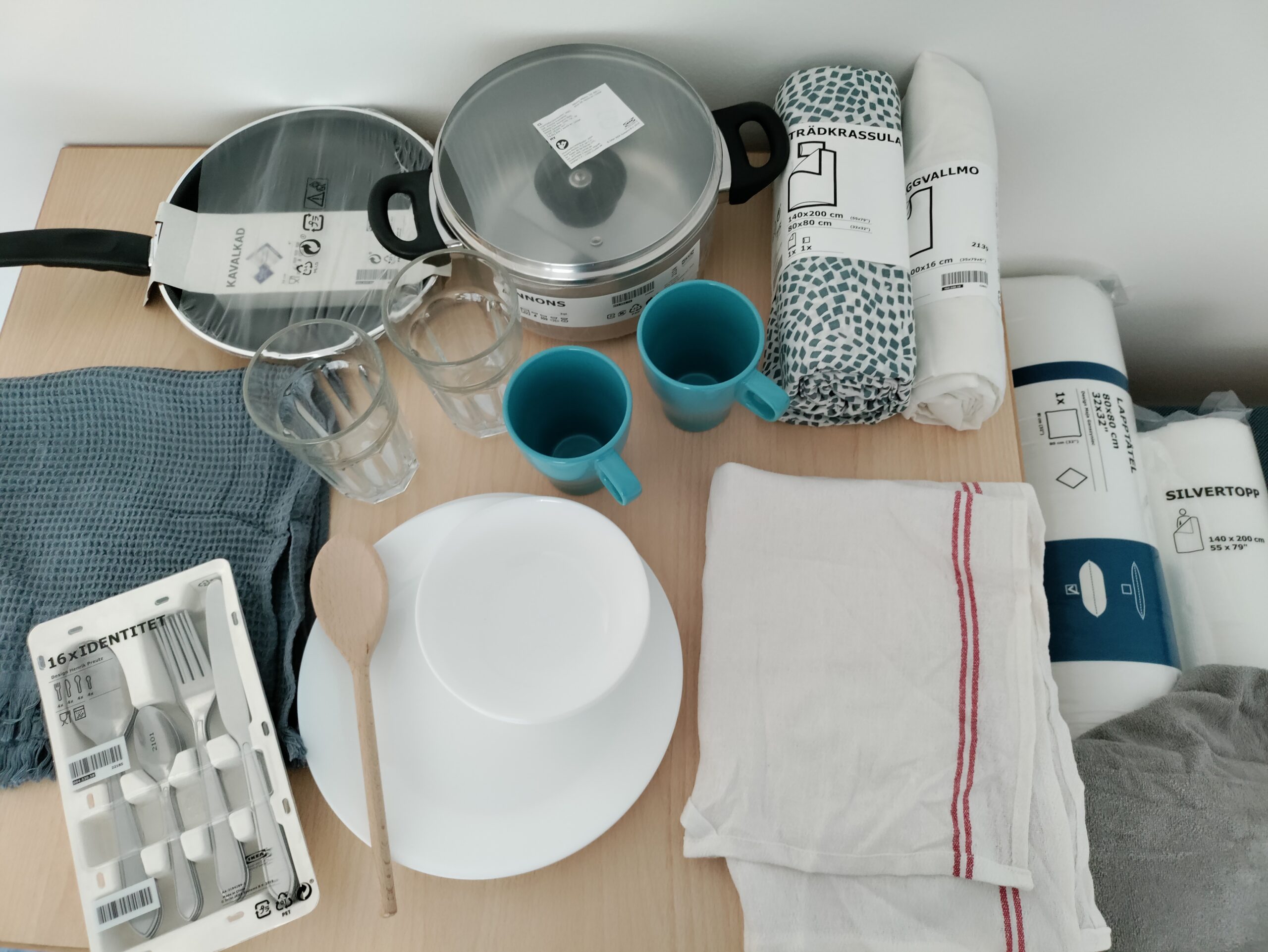
Also, the rental period started at the beginning of June. I, however, arrived in Germany a couple of weeks before that. For this time, I found a lovely Airbnb apartment to rent! So when looking for apartments, that can also be an option for a short period!
7. Checking traveling documents
When in the EU, I did not need many travel documents. The only thing was to order a new European Health Insurance Card (a.k.a. EHIC) and check that my passport and credit card would not expire while I was abroad.
8. And ready to book the flights
And when everything was settled, I could book the flights, pack my bags, and prepare to go!
If you have read my post about the Erasmus exchange, you can notice the difference: there are not so many parts in this post as the other one. This tells a lot about how much less hassle an internship causes!
After getting home from the internship
I needed to do a couple of things after returning home. As for the Erasmus exchange, I filled out the Erasmus participant survey. My department also
asked me to write an internship report to get the credits. The report helped me to reflect on what I had learned and what kind of experiences and skills I had gained during the internship. I should have got the “After the Mobility” part of the Learning Agreement filled out and submitted it to the career service. Unfortunately, I had completely forgotten this one (heh!), but it was fine that I sent a recommendation letter from my mentor.
This is all I have for you about internships abroad. I would recommend doing something like this if you are even slightly interested in it! It can be a bit hard to organize everything, but it is worth it. The internship is a great way to learn useful working life skills that are not easy to achieve in studying and experience something cool in another country!

Related posts
Day trips around South Western Germany!
Hi all! In the summer of 2023, I was doing an internship in Mainz, Germany and during my three-month stay…
Summer school! My experience in Germany
Hi all! Hope you are doing great! This time I will tell you about international summer schools. It may sound…
Mainz: more than you could expect
Hi all! Today I will introduce you to a German city Mainz. My knowledge about the city is based on…





